Cannabis Nutrient Lockout and How to Deal With It
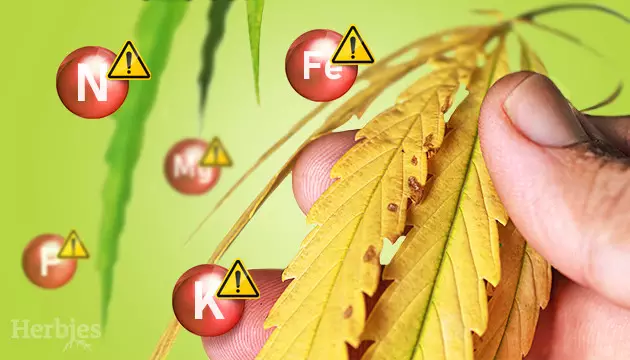
Is your plant getting all the good stuff it needs but still looks like it's ready for plant therapy? Well, it's a strong possibility that your plant is experiencing nutrient lockout. In this article, we'll dive into what nutrient lockout is, what causes it, how to identify it, and most importantly, how to deal with it to ensure your plants thrive.
What Is Nutrient Lockout in Cannabis?
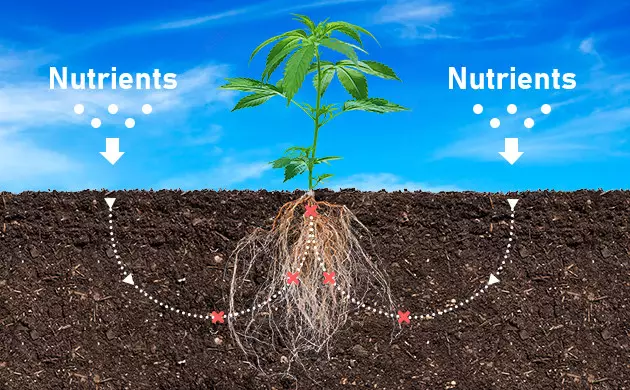
Cannabis nutrient lockout is a condition where plant roots are unable to absorb essential nutrients from the soil or other growing medium, even when these nutrients are present. This can lead to a range of growth problems and ultimately affect the quality and yield of your harvest. When nutrient lockout occurs, your plants are essentially starving, despite your best efforts to feed them.
What Causes Nutrient Lockout?
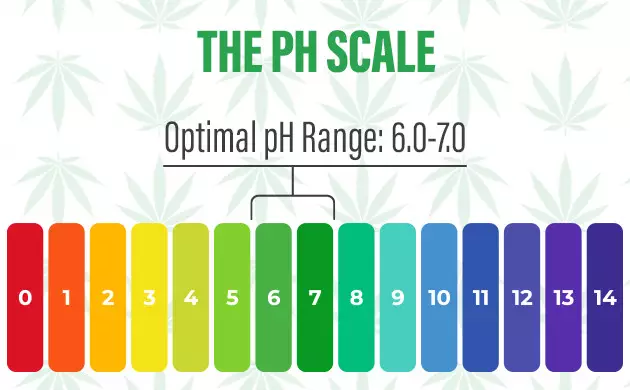
Several things can block your plants from taking in the nutrients they need. By understanding and managing pH levels, salt buildup, water quality, and nutrient balance, you can avoid nutrient lockout and help your plants grow strong. Let's look at each of these causes to see how they affect nutrient uptake and what you can do to fix them.
pH Imbalance
One of the primary causes of nutrient lockout is an improper pH level in the growing medium. Cannabis plants have a specific pH range in which they can efficiently absorb nutrients – typically between 6.0 and 7.0 for soil and 5.5 to 6.5 for hydroponic systems.
If the pH strays outside these ranges, certain nutrients become unavailable to the plant, which can result in nutrient lockout. When pH levels are too low, it can disrupt the absorption of macronutrients and secondary nutrients like calcium and magnesium. Conversely, when pH levels are too high, plants struggle to access micronutrients.
If you have a hydroponic setup, we suggest purchasing a pH controller to closely monitor and adjust the pH levels by adding acidic or alkaline solutions as necessary.
Salt Buildup
Excessive use of fertilizers can lead to salt accumulation in the soil, which then can cause nutrient lockout. These salts can interfere with the plant's ability to absorb water and nutrients, creating a toxic environment around the roots. However, regularly flushing the growing medium with water can help prevent salt buildup.
Water Quality
The type of water you use to water your plants can really make or break their health. Contaminants such as chlorine, heavy metals, or high levels of dissolved salts can disrupt the nutrient uptake process. Using properly treated water can mitigate this issue.
Nutrient Imbalance
Incorrect nutrient ratios can also cause nute lockout. Overloading your plants with one nutrient can inhibit the uptake of others, leading to deficiencies and overall poor plant health. It's essential to follow a balanced feeding schedule and adjust nutrient levels according to the plant's growth stage, avoiding excess nutrients of any kind.
Signs of Nutrient Lockout
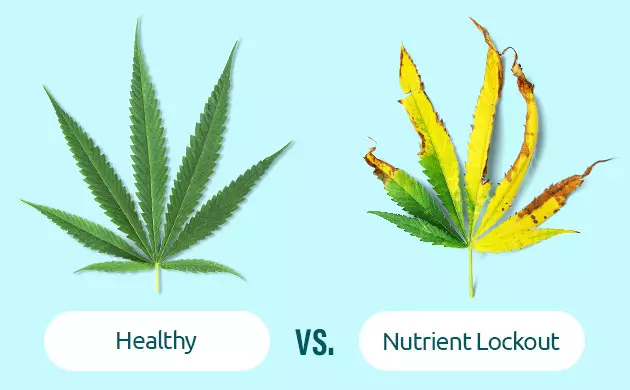
When nutrient lockout occurs, the overall health and growth of the plant are affected. You might notice that your plant is not growing as vigorously as it should, and it may produce smaller buds or lower yields. This is because the plant is not getting the nutrients it needs to thrive.
Cannabis plants will show several visual signs if they are experiencing nute lockout. Some common symptoms of this include:
- Yellowing leaves (chlorosis)
- Brown or burnt leaf edges (leaf burn)
- Stunted or slow growth
- Wilting or drooping leaves
To accurately diagnose nutrient lockout, it's important to distinguish it from other common issues such as pests or diseases. Here are a few tips:
- Check the pH of your growing medium and water.
- Look for patterns in the symptoms – nutrient deficiencies usually affect older leaves first.
- Inspect the roots for signs of salt buildup or poor health.
- Use a reliable nutrient schedule and monitor the plants' response to feeding.
Nutrient Lockout vs. Nutrient Deficiency
While nutrient lockout and nutrient deficiency can both result in similar symptoms such as yellowing leaves and stunted growth, the key difference lies in the underlying cause. Nutrient lockout is typically due to external factors that prevent nutrient uptake despite the fact that you actually feed your plants, such as a pH imbalance or salt buildup, whereas nutrient deficiency is a direct lack of certain nutrients in the growing medium.
To resolve nutrient lockout, you need to address the underlying cause, whether it's adjusting the pH, flushing the soil to remove excess salts, improving water quality, or balancing nutrient ratios. At the same time, to address nutrient deficiencies, you need to identify the specific nutrient that is lacking and supplement it accordingly. This might involve using a more balanced fertilizer, amending the soil with organic matter, or adjusting your watering practices.
How to Fix Nutrient Lockout
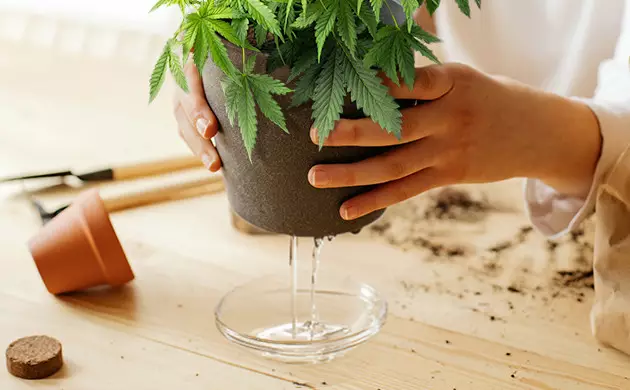
If your cannabis plants are showing signs of nute lockout, don't worry – it’s a common issue that can be fixed with some careful attention and a few key steps. Let's dive into how you can treat nutrient lockout in cannabis and get your plants back to their healthy, thriving selves.
Flushing
The first thing to try when dealing with nutrient lockout is flushing your plants. This process involves giving them a lot of water to wash away any excess salts and buildup that might be blocking nutrient absorption. Start by using plenty of clean, pH-balanced water to soak the soil or growing medium thoroughly. This helps to wash away any accumulated salts and contaminants. It's important to use water that’s at the right pH, as water that’s either too acidic or too alkaline can cause more problems. You might need to repeat this process over a few days to ensure that all the excess salts are removed. Keep an eye on the runoff water, making sure it has a balanced pH and is free of excessive salts.
pH Correction
Use a pH meter to test the soil and water. If the pH is off, adjust it with pH up or pH down solutions until it’s in the right range – 6.0 to 7.0 for soil and 5.5 to 6.5 for hydroponics. Regularly monitoring pH levels to keep them in the optimal range can prevent future issues and ensure your plants absorb nutrients effectively. Also, keep an eye on EC.
Nutrient Adjustment
Take a close look at the nutrient mix you’re using, ensuring it has the right balance for your plants' growth stage. Overloading your plants with one nutrient can inhibit the uptake of others, leading to deficiencies and overall poor plant health. Adjust the nutrient solution as needed, reducing or increasing certain nutrients to avoid imbalances. Follow a feeding schedule that matches your plant’s growth stage and needs to prevent overfeeding and salt buildup. Consistency is key here – sudden changes in nutrient levels can stress your plants and lead to further issues.
Soil Amendments
Boosting soil quality with natural additives can combat nutrient blockage and promote the overall health of your plants. You can include organic materials such as compost or worm poop to improve the texture and nutrient content. Healthy soil promotes better nutrient uptake and provides a more stable environment for your plants. Incorporating mycorrhizal fungi can also boost nutrient uptake by extending the root system and improving soil health.
Can Your Plants Recover From Nutrient Lockout?
Yes, your marijuana plants can recover from nutrient lockout. However, they will recover more quickly and effectively if you handle the situation correctly. Take action to adjust soil pH and promptly address any signs of nutrient deficiency. Remember to provide foliar feeds while dealing with lockout. Trim off any unhealthy foliage that is unlikely to recover in order to redirect nutrients to new, young, and healthy leaves.
The time it takes for your plants to recover from nutrient lockout varies depending on various factors, with the severity of the issue being a key one. Identifying signs early and immediately moving to correct the pH of your growing medium will shorten the recovery period for your weed plants. However, even if you realize the problem late, your plant can still recover within a couple of weeks.
How to Prevent Nutrient Lockout
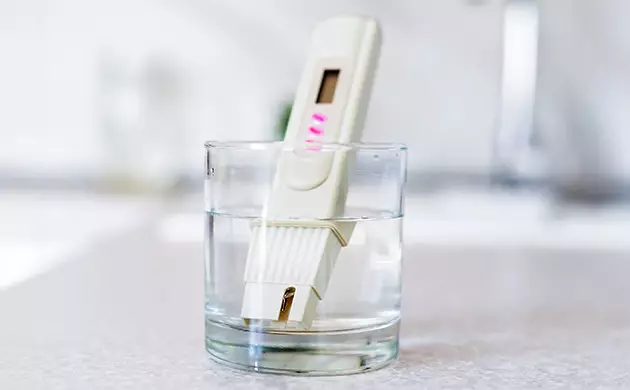
Here are some simple strategies to help you avoid nutrient lockout and keep your plants thriving.
Monitor pH Levels
One of the most important things you can do is regularly check and adjust the pH levels of your growing medium. Use a pH meter to test your soil and water, then adjust these as needed with pH up or down solutions to keep everything in the right range.
Proper Fertilization Practices
Fertilizing your plants correctly is crucial. Over-fertilization can lead to salt buildup, which can cause nutrient lockout. To avoid this, follow the recommended feeding schedule for your plants and don’t overdo it with the fertilizers. It’s also a good idea to flush your growing medium regularly. This means giving your plants a lot of water to wash away any excess salts and buildup. Doing this every few weeks can help keep the soil clean and nutrient uptake efficient.
Water Management
The quality of the water you use is just as important as the nutrients themselves. Tap water can contain contaminants like chlorine and heavy metals, which can interfere with nutrient absorption. Using filtered or distilled water can help prevent these issues. Regularly testing your water quality also ensures it’s safe for your plants and free of harmful substances.
Balanced Nutrient Solutions
Cannabis plants need a mix of nutrients, and an imbalance can lead to problems. Make sure your nutrient formulas are well-balanced and appropriate for the stage of growth your plants are in. Following a proper nutrient schedule helps ensure that your plants get what they need without any excess buildup.
Long-Term Strategies
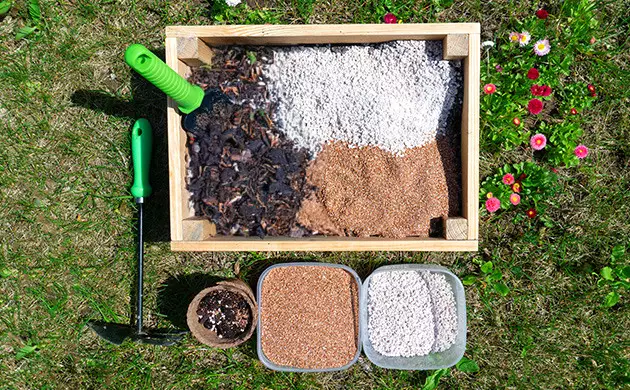
Preventing nutrient lockout isn’t just about immediate fixes; it involves adopting long-term habits that promote plant health and sustainability. By integrating these strategies into your growing routine, you can ensure your cannabis plants remain healthy and productive over time.
Routine Monitoring
Regularly checking pH and nutrient levels allows you to catch any issues early and make necessary adjustments. This will help you maintain a stable and healthy growing environment for your plants.
Sustainability in Growing Cannabis
Sustainability in growing practices can prevent nute lockout, benefitting both your plants and the environment. Using organic fertilizers and composting can enhance soil health while providing a natural, steady supply of nutrients.
Education and Training
By consistently learning and keeping up to date with the latest trends and best practices, you can enhance your growing techniques. Interacting with fellow growers and actively seeking fresh knowledge will help you stay informed and able to avoid issues like nutrient lockout and other typical problems.
Wrap-up
Preventing cannabis nutrient lockout involves regular pH monitoring, proper fertilization practices, using high-quality water, and ensuring balanced nutrient solutions. Long-term strategies like routine monitoring, sustainable growing practices, and continuous education can help maintain a healthy growing environment for your plants. Happy growing!
Herbies Head Shop expressly refuses to support the use, production, or supply of illegal substances. For more details read our Legal Disclaimer.
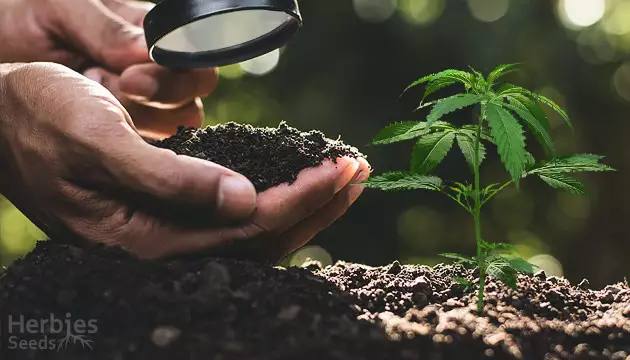
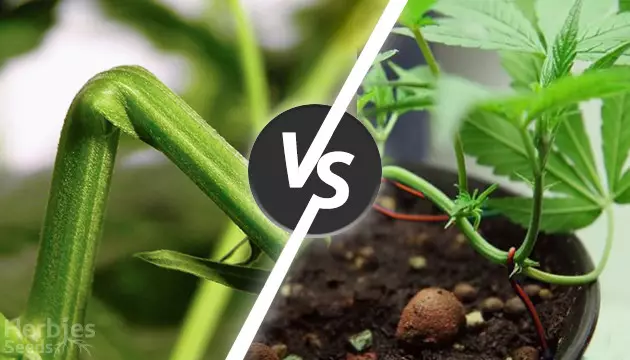





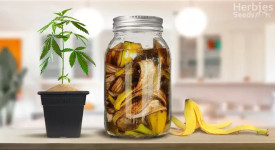




Thank you for leaving a comment for us!
Your feedback will be posted shortly after our moderator checks it.
Please note that we don’t publish reviews that: